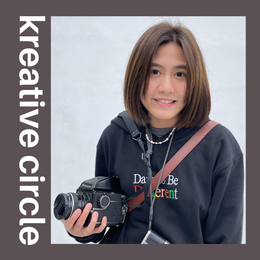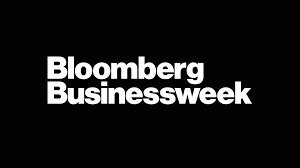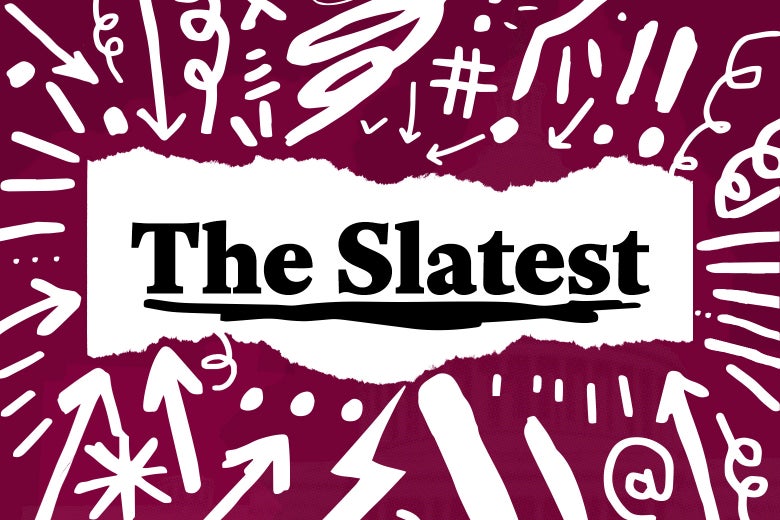Cindy, Welcome to Kreative Circle! Can you share with us how you were introduced to the art of filmmaking?
Mine was really simple. Things that inspired me were my own experience and loneliness. I am the only one who has experienced all of the dramatic moments, then I started to feel lonely in my life. I tried to share with my friends by telling them, but I couldn’t bring them into my scenario and feelings. After I studied communication in my undergrad, I got to know about visual arts. I started to shape my and other people’s story with motion pictures and sounds, then I met the charm of filmmaking.
There are many modes of storytelling which include writing, photography, still art, etc. What makes filmmaking to be a powerful tool for communicating stories about life?
In my opinion, filmmaking is a combo within writing, photography, music, and other platforms of arts. It combines all the beauties from each of the modes to one thing that can stimulate the audience all at once, which makes the audience explore and get into the motion arts journey as how they experience their own life. This kind of experience is powerful.
As an Alum from the School of Visual Arts in New York, can you please share your academic experience when working on your first degree in directing? From all the specialties to explore in film production, what made you gravitate towards directing?
It was my first time having a chance to get to know filmmaking and what a director is. It was an intense and concentrated program that let you get to know about the filmmaking industry in a professional way. Our professors were super supportive and tried to make you successful in your own artistic way.
I always think directing is the most difficult job in film production, but also it is the most exciting job. I enjoy collecting and supporting each department’s artist to create new things based on their understanding of the story. The director also has a role to make sure everything is on the same page and have good communication. I love to be a listener to my crew and help them solve all of the problems. The director is the person who gives the direction, and also is the person who tries to collect all of the outcomes from each department towards the final destination. For instance, I love working with actors and their performances always give me so many inspirations to leverage in my work and life.
What is your directorial style? How does it differ from other directors in how they approach their craft of storytelling?
I don’t know if that is my unique way or not. Hahahah! Instead of just giving my actors instructions, I always want to hear more from them. I enjoy making a connection between the actors' real-life experiences and the characters in the movies, then letting them use that relationship to improvise or come up with something new. Together with the performers, I like constructing the character.
What is one non-negotiable element (or rule) of film making that all directors must adhere to?
Safety is first. Nothing deserves anyone’s life.
Cindy, as a transplant from China, what were your initial impressions of the United States and its people?
Nothing has a right or wrong answer. I remember when I just transferred to an American high school. I was really impressed that everyone was eager to express and share their feelings and opinions. When I was in Chinese school, it was rare to see many students raise their hands up; because we always have a mindset that there is a right answer to each question.
You've had the privilege of living in a few states within the United States, how have these experiences shaped your senses in how you narrate your stories before global audiences?
I've lived in lower and upper states on the east and west coasts, and these experiences have made me aware of how backgrounds influence people. Background factors include family, personal experience, weather, and locale. These encounters gave me incredibly beneficial chances to get to know all types of individuals, and they also helped me develop a character for a tale. Furthermore, I discovered that nothing in the world is liked by everyone. However, if you create a story that is authentic to you and plausible, some others will identify with it.
Presently short films are trending in the markets. Why is this trend gaining momentum on different online and offline platforms?
In my opinion, the main cause of this is that people's lives and jobs are moving much more quickly and intensely than they did in the past, and technology makes it possible for individuals to obtain information more quickly and easily. Because of this, people would rather use or spend less time enjoying or taking a break from their life or between their jobs. The condensed substance of short films is similar to that of other resources that people are using in the present. Because of this, short films are popular in today's markets.
Cindy, you've mentioned "let the story determine how long it lasts". Is there a rule of thumb you've established under which a story can be told in an undefined time frame?
If a story runs long in film, do you believe it should be delivered to audiences in one delivery, or should the story be presented in a few movie sequels, i.e. trilogies?
Based on my experiences, I think character driven stories should be told in an undefined time frame because a character driven film is just like a journey you want to bring your audience on and feel. I do believe some of the stories can be presented in a different chapter or a few sequels. Everything has its own stages. If putting the story into several movie sequels can make the audience have a better understanding or tighter connection, I think we should break the story into pieces. In a movie, telling a story is not only about starting a plot; it's about using a story’s elements to engage the audience's hearts and minds.
What type of stories are best told in a short film? Which stories are better aligned to be presented in a long filmmaking format?
A short film should, in my opinion, have a straightforward, simple plot or setup with dramatic twists so that the audience may be hooked quickly.
It would be more of a character-driven or character's journey film for a long film format. Additionally, a story that is based on the creation of a new universe or a new society should be presented in the form of a lengthy film.
As the recipient of the International Independent Film Awards and Tokyo Film Awards, what was your reaction when learning that your work is raising awareness on the global stage?
First, I am so grateful and happy that my work has been seen and connected with other people. Second, these awards encourage me to believe in my own works and give me more confidence in my creations. Additionally, they demonstrate to me that a well-developed story may be tied to and connected to a larger world than just the close surroundings.
The movie VOICELESS is a true story which explores complicated emotions involving a student who is sexually assaulted by her mentor. The film sheds light on voiceless victims that are granted an opportunity to be seen and heard through this powerful presentation. What was the process like from articulating this true story to recreating the story for an on-screen presentation?
I have talked to people who may or may not have the similar experiences and tried to understand their feelings and their actions. Most of the answers I got are isolation and silence with different kinds of trauma nightmares. In order to make my audience feel all of those feelings in a dramatic way, I created this intense and dramatic action for the character at the end of the film.
When casting characters for your film, how involved are you in the process? Is there a team of professionals conducting auditions for these roles? What type of attributes do you seek when casting actors and actresses in your films?
As all of my films are independent and low-budget filmmaking set up. I am in charge of most of the casting and audition process. I usually look for actors who have a related feeling or story to the story first, then I will try to see what the chemistry between me and the actors is. Lastly, I would love to see how they take my directions to their performances.
As a filmmaker, do you have any auditioning tips for any prospective actors and actresses reading this interview?
Try to dig into your own experiences first before acting, then try to have your own understanding of the story before hearing from the director.
The movie The day, at the Beach paints a story highlighting the main character’s experience with family separations and reunions. If family is a root for everyone’s life, how has your family influenced your relationship with the world today?
Based on my own family story and background, I have seen different layers or stages in me and my family relationships. I am always wanting to set myself as an observer of the world. I don’t think everything should have a conclusion, but everything should have attitudes and causes. I try to be open minded to the world and be a listener to the world.
What type of hobbies do you enjoy practicing in your leisure?
I love watching movies for sure, to see how other filmmakers’ job and how they use their ways to shape stories. Other than film, I enjoy both traveling and taking still pictures. I am able to get close to real life, real people, and real stories through travel. Being a still photographer allows me to establish truly undercover intimacy with strangers.
Do you have a favorite filmmaker whose work you admire? How has their personality and portfolio of work influenced your outlook on work?
Chloe Zhao. She is a delicate and talented filmmaker. I really like how she shapes the story. Her films not only provide us with entertainment, but also take us on a journey with her character.
Cindy, what are the top two qualities that make a good filmmaker?
Being open minded, and to be a good listener.
Emotions serve as a potent theme in your films. What emotion do you identify the most with and why?
Loneliness. I think it is the most common and the first emotion that people would feel in their life. People also have different reactions and actions to this emotion. Moreover, loneliness is the emotion that is easiest and the most difficult to connect. That is why I am obsessed with loneliness.
Can you share a favorite quote on filmmaking?
“No matter how many WEAPONS you have, no matter how great your TECHNOLOGY might be, the world cannot live without LOVE.” – ‘Castle in the Sky’ 1986 by Miyazaki
I always wanted to talk with other people and get advice when I was first deciding what I wanted to be. I realize that what other people always tell me is that you need this and that kind of skill and equipment to be successful. At first, I tried to implement all of the suggestions made by others, and I realized that I was losing myself and becoming confused about my life and goals. My life revolves around passion and love. I always give my best effort and a kind heart to work and work with people because I enjoy what I do and am grateful to those who are willing to work with me. I believe that love gives meaning to everything.
Please share with audiences how they can support your work.
People can follow my personal IG account: Cindyxxindi
My film accounts: TDATB_shorfilm, and Voiceless_shortfilm. Thanks!















